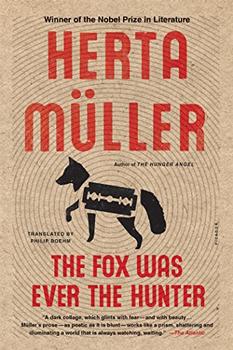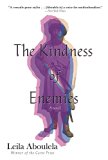Summary | Excerpt | Reading Guide | Reviews | Beyond the book | Read-Alikes | Genres & Themes | Author Bio

A Rachel Getty and Esa Khattak Novel
by Ausma Zehanat KhanA complex and provocative story of loss, redemption, and the cost of justice that will linger with readers long after turning the final page.
Despite their many differences, Detective Rachel Getty trusts her boss, Esa Khattak, implicitly. But she's still uneasy at Khattak's tight-lipped secrecy when he asks her to look into Christopher Drayton's death. Drayton's apparently accidental fall from a cliff doesn't seem to warrant a police investigation, particularly not from Rachel and Khattak's team, which handles minority-sensitive cases. But when she learns that Drayton may have been living under an assumed name, Rachel begins to understand why Khattak is tip-toeing around this case. It soon comes to light that Drayton may have been a war criminal with ties to the Srebrenica massacre of 1995.
If that's true, any number of people might have had reason to help Drayton to his death, and a murder investigation could have far-reaching ripples throughout the community. But as Rachel and Khattak dig deeper into the life and death of Christopher Drayton, every question seems to lead only to more questions, with no easy answers. Had the specters of Srebrenica returned to haunt Drayton at the end, or had he been keeping secrets of an entirely different nature? Or, after all, did a man just fall to his death from the Bluffs?
In her spellbinding debut, Ausma Zehanat Khan has written a complex and provocative story of loss, redemption, and the cost of justice that will linger with readers long after turning the final page.
1.
I will never worship what you worship.
Nor will you worship what I worship.
To you, your religion - to me, mine.
Esa Khattak turned his head to the right, offering the universal salaam at the conclusion of the evening prayer. He was seated with hislegs folded beneath him on a prayer rug woven by his ancestors from Peshawar. The worn red and gold strands were comforting; his fingers sought them out when he pressed his forehead to the floor. A moment later, his eyes traced them as his cupped palms offered the final supplication. The Maghrib prayer was for Khattak a time of consolation where along with prayers for Muhammad, he asked for mercy upon his wife and forgiveness for the accident that had caused her death. A nightly ritual of grief relieved by the possibility of hope, it stretched across that most resonant band of time: twilight. The dying sun muted his thoughts, much as it subdued the colors of the janamaz beneath him. It was the discipline of the ritual that brought him ...
Where The Unquiet Dead really soars is Khan's sensitive and intelligent portrayal of the violent history of the former Yugoslavia, which raises questions of responsibility, retribution and justice. This is a novel that manages to be informative without being didactic or slow-paced, and to be complex without being confusing...continued
Full Review
 (508 words)
(508 words)
(Reviewed by Kate Braithwaite).
 Hank Phillippi Ryan, Agatha, and Mary Higgins Clark Award-winning author of The Other Woman
Evocative, surprising, and important. With its mesmerizingly personal voice, each lyrical sentence reveals another suspenseful layer of this complex and heartbreaking mystery. Harrowing and disturbing, its delicate strength creates tension on every page.
Hank Phillippi Ryan, Agatha, and Mary Higgins Clark Award-winning author of The Other Woman
Evocative, surprising, and important. With its mesmerizingly personal voice, each lyrical sentence reveals another suspenseful layer of this complex and heartbreaking mystery. Harrowing and disturbing, its delicate strength creates tension on every page. Jilliane Hoffman, New York Times bestselling author of Pretty Little Things
What a debut! Ausma Khan's The Unquiet Dead is a stirring mystery with unexpected, complex characters and a story that will keep you flipping pages until the wee hours.
Jilliane Hoffman, New York Times bestselling author of Pretty Little Things
What a debut! Ausma Khan's The Unquiet Dead is a stirring mystery with unexpected, complex characters and a story that will keep you flipping pages until the wee hours. Reza Aslan, #1 New York Times bestselling author of Zealot
A spectacular debut. Khan has written a heartbreaking book that stays with you long after you've put it down.
Reza Aslan, #1 New York Times bestselling author of Zealot
A spectacular debut. Khan has written a heartbreaking book that stays with you long after you've put it down. Steve Hockensmith, Edgar-nominated author of Holmes on the Range
It would be enough that Ausma Zehanat Khan's The Unquiet Dead gives us an intriguing new detective team in Esa Khattak and Sgt. Rachel Getty. But it does far more than that. Khan creates an engrossing story that allows her to sift through the emotional rubble of real-world tragedy. In the end, it isn't just gripping. It's devastating.
Steve Hockensmith, Edgar-nominated author of Holmes on the Range
It would be enough that Ausma Zehanat Khan's The Unquiet Dead gives us an intriguing new detective team in Esa Khattak and Sgt. Rachel Getty. But it does far more than that. Khan creates an engrossing story that allows her to sift through the emotional rubble of real-world tragedy. In the end, it isn't just gripping. It's devastating. On June 25 1991, Slovenia and Croatia declared independence from Yugoslavia, which, since World War II, had operated as a federal republic comprised of the territories – Slovenia, Croatia, Bosnia and Herzegovina, Serbia, Montenegro and Macedonia.
On June 25 1991, Slovenia and Croatia declared independence from Yugoslavia, which, since World War II, had operated as a federal republic comprised of the territories – Slovenia, Croatia, Bosnia and Herzegovina, Serbia, Montenegro and Macedonia.
The departure of Croatia, a republic with a large Serbian population, was of particular concern to Slobodan Milosovic, Serbia's party leader and president, who also served as president of the Federal Republic of of Yugoslavia from 1997 to 2000. Armed conflict followed, initially focused in Slovenia and Croatia. But as the desire for independence spread to Bosnia and Herzegovina, a republic with a diverse ethnic population including a large Muslim population and a Serbian (and pro-...

If you liked The Unquiet Dead, try these:

by Herta Muller
Published 2017
An early masterpiece from the winner of the Nobel Prize hailed as the laureate of life under totalitarianism.

by Leila Aboulela
Published 2017
A versatile prose stylist... [Aboulela's] lyrical style and incisive portrayal of Muslims living in the West received praise from the Nobel Prize winner J. M. Coetzee... [she is] a voice for multiculturalism." - New York Times




Judge a man by his questions rather than by his answers.
Click Here to find out who said this, as well as discovering other famous literary quotes!